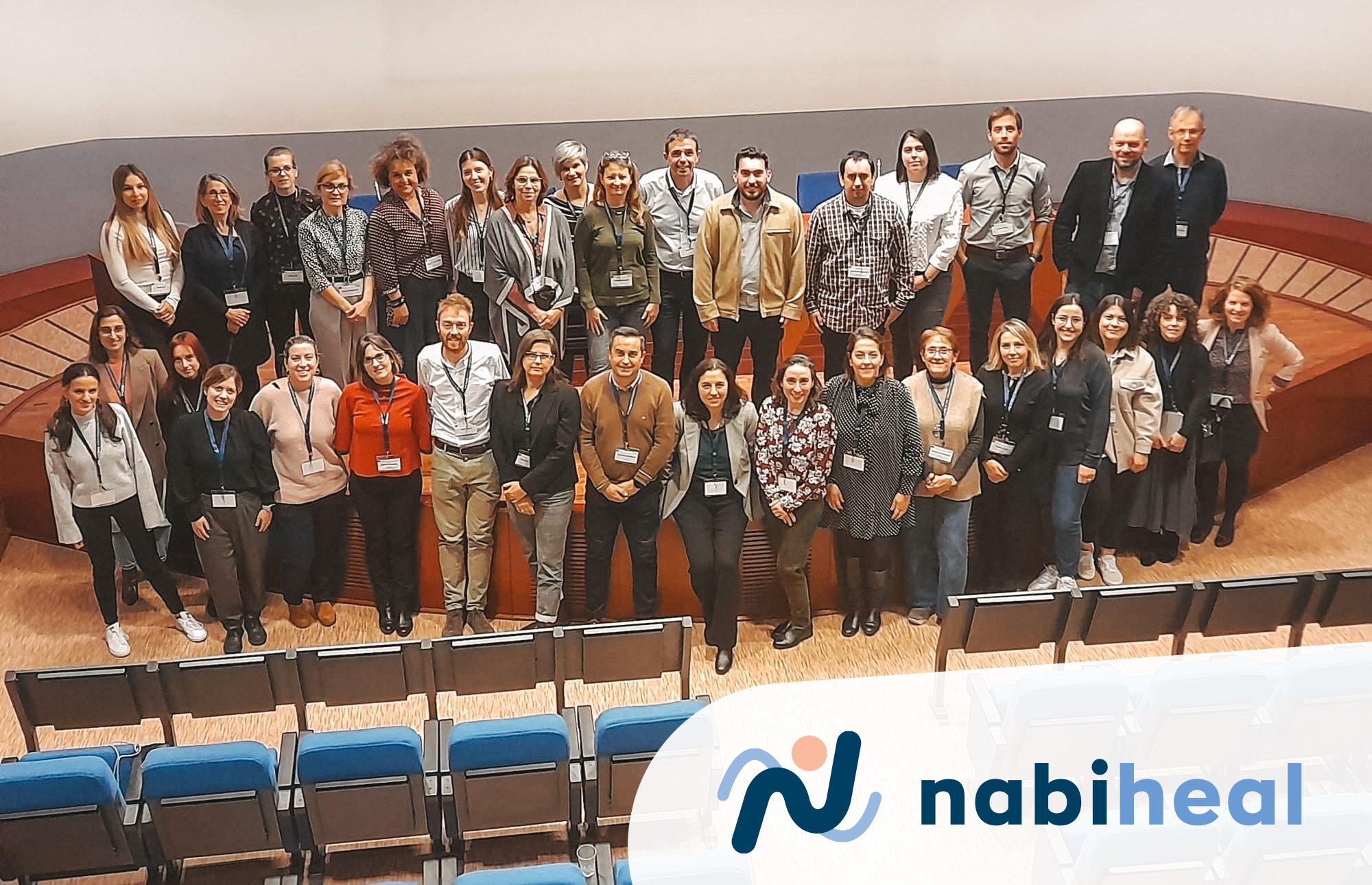
The Horizon Europe project NABIHEAL, coordinated by the Center for Biomedical Research Network (CIBER) at the Institute of Materials Science of Barcelona (ICMAB-CSIC), was launched on 11-12 January 2023 in Barcelona with the first meeting of the international consortium, formed by 14 partners from 7 countries, including research centers, universities, and private companies.
This project will apply one the “Cutting Edge Biomedical Solutions” of NANBIOSIS for the preparation of different nanoestructures with antimicrobial properties, required for the development of the final multifunctional wound healing biomaterials. This case will gather the expertise of two NANBIOSIS unit: NANBIOSIS U6 will produce and characterize these nanoestructures with antimicrobial properties, which will be tested in NANBIOSIS U16.
NABIHEAL stands for “Antimicrobial Nanostructured Biomaterials for Complex Wound Healing” and is funded under the Horizon Europe Research and Innovation programme with a total budget of nearly 5 million euros over four years. NABIHEAL aims at solving two unmet medical needs in complex wound healing: on the one hand, affordable treatments for wound infections and prevention of complications during wound healing, and on the other, a strategy to optimize the composition and efficacy of wound dressings.
The kickoff meeting, held at the CSIC Researcher’s Residence in Barcelona, was opened by the project coordinator, Nora Ventosa, from CIBER and ICMAB-CSIC, and by institutional and political representatives, including Riccardo Rurali, Vice-Director of ICMAB-CSIC; Ramon Martínez Mañez, Scientific Director of CIBER-BBN; Jordi Aguasca, Director of Technological Transformation and Disruption Unit, ACCIÓ; and Xavier Aldeguer, General Director of Society of Knowledge, Transfer & Territory of the Catalan Government. The meeting provided the opportunity to interact in person with all the consortium partners and establish the first collaborative activities to ensure timely delivery of the project milestones.
Complex wound healing as a global health problem
The NABIHEAL project will advance on the synthesis of advanced nanostructured biomaterials as an alternative to the commonly used silver-based materials. “The project will work to produce multifunctional materials for the treatment of complex wound healing, which has become a global health problem. For example, in developed countries, it affects the quality of life of more than 2% of the total population,” affirms Nora Ventosa, coordinator of the project.
Complex wounds, such as chronic wounds, are highly susceptible to microbial infection and biofilm formation, and thus difficult to treat. The most common antimicrobial products to treat these infections are based on silver. However, they have several economic, environmental and safety drawbacks. The biomaterials developed within the NABIHEAL project will offer a safer, more sustainable and more cost-effective alternative.
The project aims to obtain innovative multifunctional wound healing biomaterials using affordable EU-based manufacturing technologies. In the long term, NABIHEAL could become a game-changing alternative to silver in wound healing dressings.
An International Consortium
The goals of the project will be tackled by an interdisciplinary consortium from 7 countries, combining expertise in different areas, such as synthesis and characterization of biomaterials, biocompatibility and safety, regulatory aspects and ethics, or wound healing product development and scale-up. “We are excited to launch this project, in which 8 academic institutions and 6 private companies will join forces to face the challenging problem of complex wound treatment,” adds Prof. Ventosa.
In addition to the Center for Biomedical Research Network (CIBER) at the Institute of Materials Science of Barcelona (ICMAB), as coordinator, the international consortium is formed by the following centers and companies: from Spain, the Center for Biomedical Research Network (CIBER) at the University of Extremadura and the University of Cantabria, the Spanish National Research Council (CSIC), Nanomol Technologies S.L. (NT), Bioiberica S.A.U (BIO), Histocell S.L (HCELL), the University of Granada (UGR), and Asphalion (ASPH); from Germany, MyBiotech GmbH (MyB) and Charité-Universitätsmedizin Berlin (CH); from Croatia, the Institute for Medical Research and Occupational Health (IMI); from Denmark, the Aarhus University (AU); from Israel, the Technion-Israel Institute of Technology (IT); from Austria, BioNanoNet Forschungsgesellschaft mbH (BNN); and from Slovenia, the University of Maribor (UM).
More information:
Prof. Nora Ventosa, Project Coordinator, CIBER, ICMAB-CSIC ventosa@icmab.es
Caitlin Ahern, Communication, BioNanoNet caitlin.ahern@bnn.at








